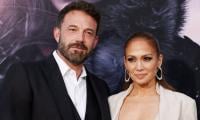Pulwama and after
Whoever conceived and enacted Pulwama did no favour to Pakistan or the Kashmir struggle – despite recent talk that the Kashmiri fight for freedom stands on its own and cannot be conflated with terror.
Perhaps the legal basis is strong for such a conclusion and an argument can be made in support of the Kashmiri struggle around statutes and articles contained in various covenants and agreements. But hasn’t that been the case for the last seven decades since UN coined those resolutions? Yet the issue has foundered on one or the other count. Much water has flown through the Indus since, convoluting what may have appeared simpler and more straightforward in the early days.
The tactics employed at Pulwama haven’t found much favour internationally despite the moral or political justification of the Kashmir cause. They have instead rendered the Kashmir cause to diverse interpretation , despite the nobility attached to fighting for a people’s freedom. What have the Afghan Taliban been up to? Fighting foreign occupation. What have the poor Palestinians been fighting against? Israeli occupation of their lands. Can there be another struggle with greater bona fides than the one the Palestinians had waged? But what do we have instead?
The Palestinians are seen as terrorists – the former Fatah, Hamas, Hezbollah; all are globally perceived as terror groups – yet their cause is just by the covenants founded in most constitutions of member states. Ditto the Kashmiris. The line though between fighting a rightful struggle and the means employed to attain those can be murky enough to change the character of the struggle with an attendant danger that terror may be conflated with it. This is where the slippery slope begins.
It helps to revisit the Palestinians’ struggle to free their occupied lands. The world recognises their right to a separate homeland through as many accords and agreements between world powers and the Israelis and the Palestinians. Isn’t it a travesty then that, while the cause is kosher and their demand for a basic human right just, yet any shape their struggle attains towards fulfilment of that aspiration is perceived as terrorism? The Zionist move for Israel used similar tactics to carve ‘Eretz Israel’. With the right international support and unique geopolitical conditions in the Middle East, Israel was enabled to a people. Kashmir and Palestine have not been as lucky. The two-state solution may be the widely accepted course to resolve the Palestinian issue, but it has been successfully denied by an evolving strategy which has diluted the very status of the people for whom a state is sought. Many planks in parallel are in play.
In the Fatah days with Yasser Ararfat at the helm, when the Palestinians – having employed all means political and militaristic to earn their freedom and their territories from Israel – resorted to airplane hijacking to draw world attention to their cause, the perception soon mutated to the PLO being a terror group. That gave carte blanche to the Israelis. And while Yasser Arafat continued to tour world capitals, the tag of a terrorist never left him. No amount of noise emphasising the Palestinians’ right to a state ever earned him or his people deliverance from the terror perception.
What followed makes for a sad spectacle of ethnic engineering and demographic manipulation. The Jewish ‘settlers’ were deliberately fed to further encroach upon Palestinian lands and reshape the composition of the population. Today the Israelis control Palestinian lands , as the Palestinians remain largely tainted for their terrorist ways while the two-state solution stands reduced to an academic existence.
Compare that to Kashmir and its current state of the freedom struggle. The fight has been exemplary, internalised to the point of belief and destiny against an occupying state and a large Indian army. The struggle has caught the imagination of the Kashmiri youth who are suffused with the passion to deliver to its people freedom from the yoke of Indian occupation. To them, Pulwama may only be another milestone. Except the world is a complex place and the history of such struggles inform differently. Compare Burhan Wani’s act to that of Adil Dar. While both may have been equally imbued in their belief, Pulwama has the making of the dangerous tipping point where a freedom struggle is being loudly conflated with terror.
That is why Pulwama was a poorly-thought-out act. It has the making of plaguing a bona fide freedom struggle into a globally tainted terrorist manifestation. Pakistan and the long proscribed JeM were most opportunistically invoked once again, forcing Pakistan to fight another rearguard action to save its image as well as the extended fallout. Both India and Pakistan skirmished with attendant escalatory dangers even as they remain stuck in a half-war - at a time which is patently inappropriate for Pakistan. An internal action against locally based jihadi groups, even if they stood proscribed for long, meant all wasn’t good enough and foreign diktats had to be appeased to keep war out. Pakistan is in a strategic bind, regardless of its greatly applauded tactical brilliance in the recent challenge imposed by the Indian aggression.
This makes the moment in the Kashmiri freedom struggle particularly poignant, which can and will be used by India, ala Israel, as their casus belli for state intervention against terror. That is the cost to the entirely just freedom struggle; Pulwama, and some other incidents since, made that possible. Already the literature associated with defining terror indicates means and methods as the differentiating elements from a rights struggle. That’s the trick employed by the oppressing forces that are tainting groups, communities, people or a nation fighting occupation and oppression with terror. India has been at it since the 2008 Mumbai attack. That is what Israel gained from and that is why India is treading in a similar quest.
Recall the threat of the dilution of Article 35A of the Indian constitution under a more assertive Indian parliament, and the ultimately desired demise of Article 370 whenever a more helpful composition of the Kashmir Assembly so enables. And it just might help understand the long game in play in Kashmir. It is about time Pakistan and the Kashmiris played their cards right and avoided being sucked into the terror trap. Not a whimper has emerged in condemnation of the Indian aggression at Balakot because it got subsumed in the larger equation of reprisal to Pulwama, labelled a terror manifestation. Regardless of how noble the Kashmiri struggle for freedom is, this will remain a tightrope walk.
Pulwama weakened Pakistan’s and Kashmir’s positions, despite their moral and legal grandstanding. For India it can be a windfall; already the suppression in Kashmir has touched newer lows. Who got Adil Dar to do the act? The muddle only got messier.
Email: shhzdchdhry@yahoo.com
-
 Keith Urban, Nicole Kidman's Daughters Choose One Parent To Side With
Keith Urban, Nicole Kidman's Daughters Choose One Parent To Side With -
 Sarah Ferguson's Hidden Trait Exposed As Expert Dismantles Shadow Side To Her Personality
Sarah Ferguson's Hidden Trait Exposed As Expert Dismantles Shadow Side To Her Personality -
 Sarah Ferguson Backed By Powerful Friends Amid Epstein Fallout
Sarah Ferguson Backed By Powerful Friends Amid Epstein Fallout -
 PINK’s Latest Move Sparks Speculations About Replacing Major Celebrity On Show
PINK’s Latest Move Sparks Speculations About Replacing Major Celebrity On Show -
 Planetary Parade 2026: Here's How To See Six Planets Aligning Today
Planetary Parade 2026: Here's How To See Six Planets Aligning Today -
 Christopher Nolan Reveals Why He's A Fan Of 'Fast & Furious' Movies
Christopher Nolan Reveals Why He's A Fan Of 'Fast & Furious' Movies -
 Ben Affleck Unable To Accept A New Lover Post Jennifer Lopez Divorce As He Still Grieves End Of Bennifer 2.0
Ben Affleck Unable To Accept A New Lover Post Jennifer Lopez Divorce As He Still Grieves End Of Bennifer 2.0 -
 Why Is Demi Moore Being Called Ozempic Victim?
Why Is Demi Moore Being Called Ozempic Victim? -
 Kaley Cuoco Makes Honest Comparison Of 'Big Bang Theory' And 'Charmed' Gigs
Kaley Cuoco Makes Honest Comparison Of 'Big Bang Theory' And 'Charmed' Gigs -
 Robert Picardo Shares Surprising Reaction On Returning To The 'Star Trek' Franchise
Robert Picardo Shares Surprising Reaction On Returning To The 'Star Trek' Franchise -
 AI Feud Deepens As Musk Targets OpenAI Over Safety Concerns
AI Feud Deepens As Musk Targets OpenAI Over Safety Concerns -
 'Paranoid' Andrew Fears Assassination: 'Panic Is Spiralling'
'Paranoid' Andrew Fears Assassination: 'Panic Is Spiralling' -
 Israeli Minister Hits Back At Prince Harry
Israeli Minister Hits Back At Prince Harry -
 Thousands Of Google Accounts Could Be Misused By Hackers: Report
Thousands Of Google Accounts Could Be Misused By Hackers: Report -
 Prince Harry Ignores Question About Andrew
Prince Harry Ignores Question About Andrew -
 Ryan Gosling On What Makes 'Star Wars: Starfighter' Different From Other Franchise Films
Ryan Gosling On What Makes 'Star Wars: Starfighter' Different From Other Franchise Films




